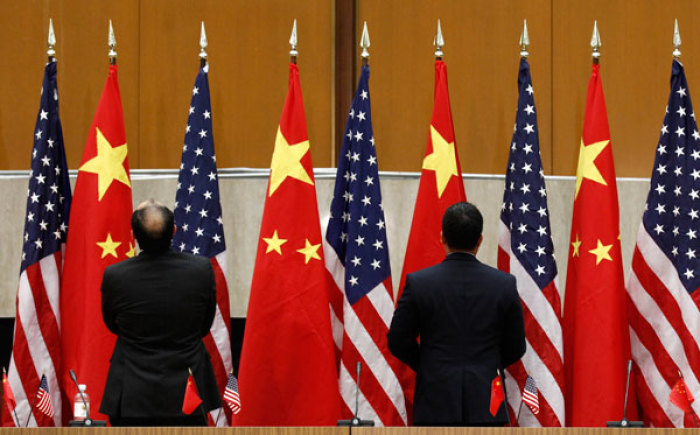Poll: Most Say China Will Replace US as World's Leading Superpower

Although America is still regarded as the world's leading superpower, a Pew Research poll of citizens in 39 countries around the world showed that most people think that China will eventually replace the United States in that role.
In the results of the poll released on Thursday, only in six of the 39 countries did a majority of respondents on the matter say China will never topple the United States to become the world's leading superpower.
More than half the respondents in Europe felt that China had eclipsed or will take over from America as the world's leading superpower and Canadians also shared that view.
When it came to American respondents, they were evenly divided. Some 47 percent think China will replace the U.S. as the world's leading superpower or has achieved it already, while a similar percentage believe China will never achieve that kind of dominance.
"In the other four regions surveyed, publics generally believe China will replace the U.S. as the world's leading superpower, though opinion is somewhat more split," noted the report.
"In the Asia/Pacific region, at least half of Australians, Chinese, South Koreans and Pakistanis say China will or has become the dominant global power, while majorities in Japan and the Philippines believe the U.S. will retain its status. Publics in Indonesia and Malaysia are divided," it noted.
A majority of citizens in five of the seven Latin American countries surveyed in the poll agreed that China "will replace, or has already replaced, the U.S. as the world's leading superpower."
Salvadorans were more likely to maintain America's dominance while Brazilians were divided on the issue.
In Africa, of the six countries surveyed in the region, majorities in Kenya, South Africa and Nigeria maintained that China has replaced or will replace the U.S. as the world's leading superpower.
A majority of the respondents in Uganda, however, feel the U.S. will remain the world's leading superpower. In Ghana and Senegal, sentiments on the issue were almost evenly divided.
When posed in the Middle East, however, citizens could not come to a consensus.
"Half or more in Egypt and Lebanon say the U.S. will continue to be the world's superpower. Palestinians and Tunisians, meanwhile, are more likely to say China is on the rise. Turks, Jordanians and Israelis are uncertain as to which country will be the leading power in years to come," noted the report.
When it came to economic dominance, compared with 2008, more people today believe China will replace or has already replaced America as the leader in that area.
"Some of the biggest changes are in Europe, such as in Poland, where the percentage who believe China will become the next superpower jumped 17 percentage points over the past five years," noted the report.
In the U.S., just 36 percent asked to comment on the issue in 2008 said China would eclipse the U.S. That percentage has increased to 47 percent today. Double-digit increases were also indicated in Lebanon (+15), South Africa (+14) and Indonesia (+12).




























